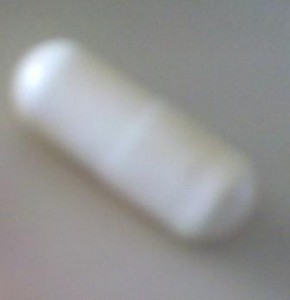Dimethylamylamine (DMAA) Linked to Army Deaths
Dimethylamylamine, also referred to as DMAA and methylhexanamine, has been linked to two deaths of U.S. soldiers, the United States Army has announced.
The deaths, both heart attacks, occurred among the soldiers during their fitness training and testing. The first occurred in the summer of 2011. A 22-year old man succumbed during a training run. In the second, a 32-year old collapsed during a fitness test during the fall of 2011, according to the U.S. Army and a New York Times report.
U.S. Army spokesman Peter Graves told New York Times reporters that DMAA was found in toxicology reports of the two soldiers. He also said that other reports have found liver damage, kidneys issues, rapid heartbeat and loss of consciousness among other soldiers using DMAA.
In response to the deaths and other concerns, the U.S. Defense Department has pulled DMAA products off of their military base stores worldwide.
Some countries, including Canada, New Zealand and Australia regulate DMAA as a drug or restricted substance. The World Anti-Doping Agency added dimethylamylamine to its prohibited list in 2010. After the ban, several athletes have been disqualified for using the chemical in competitive athletic events.
What is DMAA?
Dimethylamylamine was originally developed by Eli Lilly in the 1940s as a nasal decongestant and oral anti-inflammatory agent. It stopped marketing the drug, called Forthane, and it has since been classified as a stimulant, similar in action to amphetamine, but not as potent. It also is labeled under the names methylhexanamine, Geranamine. It’s molecular name is 1,3-dimethylamylamine.
While dimethylamylamine was originally isolated from the Asian geranium herb (Geranium wallichainum), it is typically synthesized by combining methylhexanone and hydroxylammonium chloride. Several popular U.S. supplements – marketed primarily as workout aids and energy boosters – now contain the substance.
While DMAA supplement producers have announced that the chemical has a record of safety, its recorded side effects include nausea, stroke and heart attack. Side effects can be worse for women.
Does this mean that the Asian geranium herb is toxic?
Not necessarily. As is the case with ephedra and Ephedra sinica, and acetylsalicylic acid (aspirin) and the Meadowsweet and Willow bark herbs, the effects of the whole herb are radically different than the effects of a single isolated – especially when synthesized – component of the herb. As these whole herbs or their whole herb extracts have been used for centuries without a history of toxicity or drastic side effects, research has established that whole herbs provide a range of constituents that tend to buffer and balance the effects of any one particular constituent.
This, however, doesn’t mean that consuming the whole herb will prevent a positive drug test for an athlete being tested for anti-doping.
There are a number of safe natural products that can increase athletic performance and strength. Some can also safely increase testosterone levels in men.
Ashwagandha increases testosterone levels and muscle strength according to research. Reishi and Cordyceps mushrooms also boost testosterone, and increase athletic performance.
Learn more about the application of whole herbs versus synthesized compounds for joint issues:
















